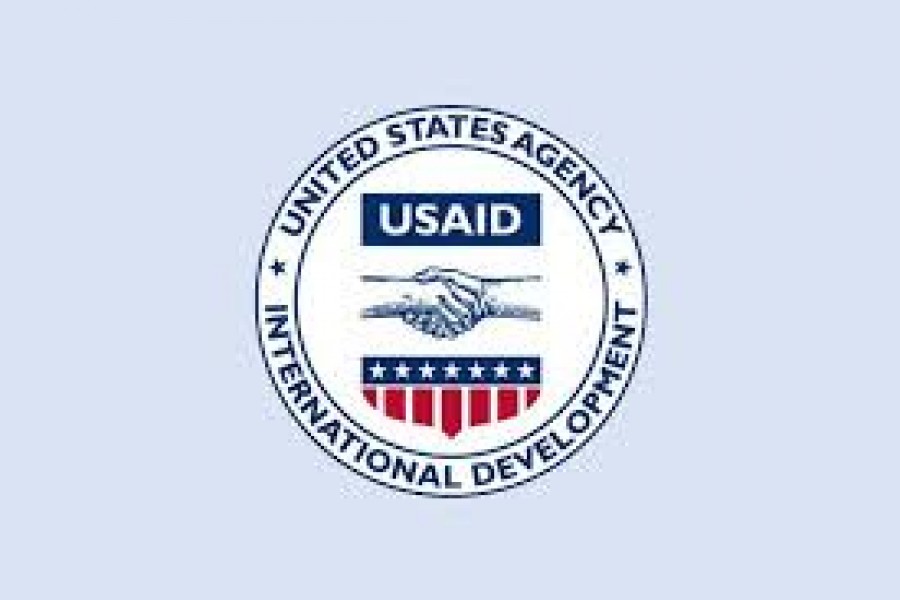The US Agency for International Development (USAID) on Wednesday said it helped train 163,287 livestock farmers, including 143,577 women, over the past five years.
With a share of 13.46 percent in the agricultural GDP, livestock plays a crucial role in Bangladesh’s agricultural economy, according to USAID facts sheet shared by the US Embassy.
The $16 billion milk and meat sector provide jobs for rural youths and women and contributes to nutrition significantly.
However, the COVID-19 pandemic continues to negatively impact both employment and nutrition, said USAID.
With funding from USAID, the Feed the Future Bangladesh Livestock Production for Improved Nutrition Activity has been working to increase livestock productivity for improved nutrition and income generation of rural households since 2015.
The Activity partners with the Department of Livestock Services (DLS) and private sector enterprises to make livestock services available to farming communities, including access to livestock inputs such as feed and fodder, animal health products and services, and artificial insemination.
The Activity also trains farmers, milk collectors and processors in hygienic milk production, preservation, and processing, while helping promote dairy products in domestic markets.
It encourages good nutrition and improved hygiene among rural families like Fahima Talukdar’s.
"By applying the knowledge from the training, I was able to increase milk production from my two cows by at least five liters per day,” said Fahima, a livestock farmer from Barishal.
“With the project's support, we can directly sell milk to dairy processors every day. In less than a year, our monthly income from milk sales has increased from $210 to $270."
According to Bangladesh’s Demographic and Health Survey, from 2017 to 2018, 31 percent of children under the age of five are stunted, while 22 percent underweight, and eight percent wasted—have low weight for their height.
Besides, the average daily milk consumption is 158 ml per day per person compared to the WHO’s recommended requirement of 250 ml per day per person.
To supplement limited livestock services, the activity also created a resource pool with livestock service providers to ensure livestock services to the farmers.
A total of 863 livestock service providers, including 142 women, are currently delivering livestock services in the Activity’s working areas to improve the adoption of new technologies and best management practices by smallholder farmers.
As a result, between 2015 and 2019, the average milk production per cattle has tripled—from 1.54 liters per day to 4.57 liters per day.
The participating farmers experienced a 40-percent increase in the contribution of livestock income to total household income.
The Activity’s work in social behaviour change has improved the consumption of target animal source foods and other nutrient-rich food in households.
A recent Activity assessment revealed that the minimum dietary diversity for women has increased by 42 percent from the baseline in 2015 in terms of consuming at least five food groups.
The weekly consumption of meat and milk has increased by 40 percent and 38 percent, respectively.
In addition, a gender-integrated programme approach has boosted women’s decision making over livestock rearing and related purchases by approximately 70 percent.
The COVID-19 pandemic that unfolded in Bangladesh in March 2020 has significantly affected the livestock sector.
To reduce the impact of this pandemic, the Activity has promoted alternative marketing strategies by linking online food delivery platforms with local dairy processors that will reach more customers and minimize the negative economic impacts on their businesses, as is the case for Md Kamrul Islam, owner of local Jayhoun Dairy Shop.
“After being closed for almost a month, with the support from USAID funded Livestock and Nutrition Activity and District Livestock Office, we reopened our shop in April,” he said.
"We now sell around 700 liters of processed milk products at our shop and the online food delivery platform, Foodpanda.”
The US government, through USAID, has provided more than $7 billion in development assistance to Bangladesh since 1971, reports UNB.


